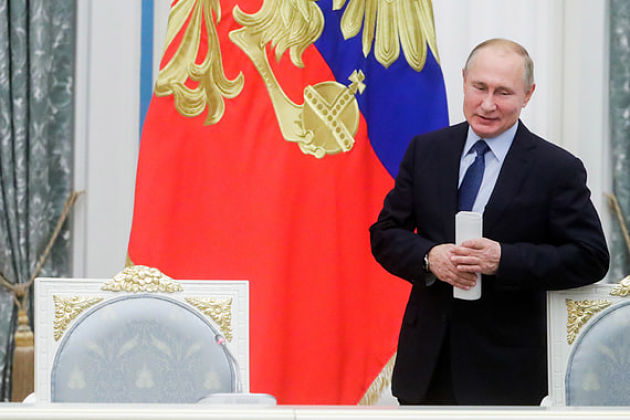“They started pushing patriotism. Apparently, they embezzled.” – This famous phrase could not better describe the “defense of the Russian language” frenzy that has been sweeping Russia for the past week.
It all began with a post on the personal blog of Professor Gasan Guseynov of the Higher School of Economics in Moscow, who described the Russian language spoken by Russians today as “trashy” and lamented the difficulties faced by speakers of other languages in accessing media in their own languages in Russia. In fact, this is just one of the thousands of social media posts that deserve no more attention than any other.
Well, one person expressed his personal opinion – you can agree with it or not, but it is certainly not the most important issue in a country that has far more pressing problems. But that is exactly what happened, as the issue was elevated to the level of the leading Kremlin-controlled TV channels, which joined in fanning the flames.
And yesterday it became clear why this was done. The campaign to protect the Russian language was led by none other than the “national leader” himself, who spoke at the recent Russian Language Council held in the Kremlin. He stated that not only “cave Russophobes” and “aggressive nationalists” but entire countries had declared “war on the Russian language” and made it their state policy.
Whether Professor Guseynov should be considered a “cave Russophobe” or an “aggressive nationalist” remains unclear, but as for the countries where the fight against the Russian language has become state policy, one can assume that the Baltic states and Ukraine are meant. But what are they doing there that the “defenders of the Russian language” wouldn’t do in Russia with other languages?
Do they broadcast in Russian? How many Ukrainian-language TV programs are there in Russia, or at least appearances in Ukrainian during Russian-language programs, as is still often the case in Ukraine, where participants in programs speak in Russian? Or is there education in the state languages in public schools for general subjects? How many schools in Russia teach physics, chemistry, biology, etc. in Tatar, Yakut, Chuvash, and other languages, which, by the way, are also state languages in their respective republics?
Speaking of the Tatar language, it did not go unnoticed at this council either. Vladimir Alpatov, the head of the Research Center for National and Linguistic Relations at the Institute of Linguistics of the Russian Academy of Sciences, stated that “in the Republic of Tatarstan there are ‘contradictions and deficiencies’ in the allocation of hours for teaching Russian and Tatar” that need to be overcome.
We know what these “contradictions and shortcomings” are from previous campaigns to protect the Russian language. Russian-speakers felt very disadvantaged by the fact that they had to study Tatar for several hours a week while living in Tatarstan within the framework of the Russian-language curriculum, which applied to all subjects.
In short, another session of “defense of the Russian-speaking population” by the “national leader” was successful. Apparently, it was meant to somehow compensate for the failed defense of the Russian-speaking population during the previous session, when he proposed sending volunteer students to make up for the shortage of doctors in rural areas.

